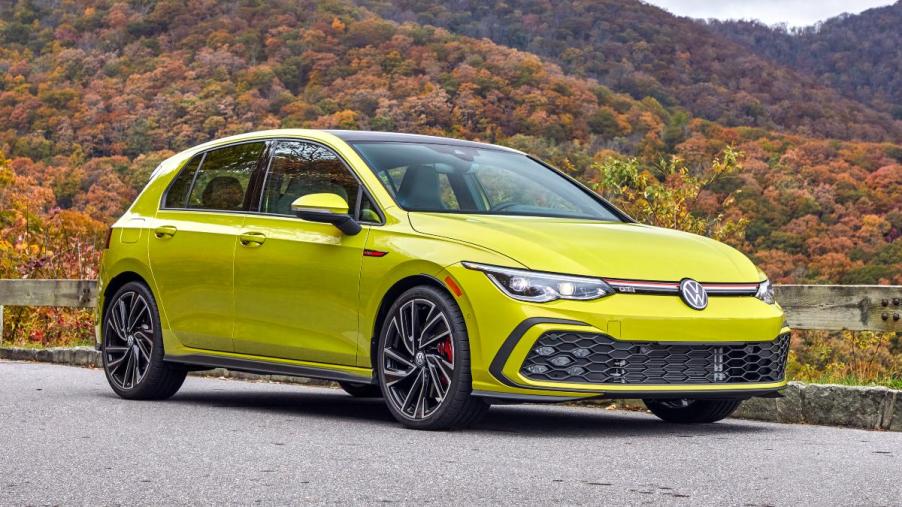
Report: Volkswagen Kept Stalling a Golf Recall As Long As It Could Get Away With
It is disappointing that Volkswagen is again the subject of more questionable practices over safety and consumer relations. In the past, it was over its “dieselgate” scandal that ultimately cost it billions of dollars. More recently, it is its delinquency in recalling cars for as long as it could. A twice-recalled Golf hatchback has seen reported problems beginning in January 2021 but has used “monitoring” as the excuse to finally issue a recall this month.
What is the Volkswagen recall for?

The long-delayed recall is for radiators in Golf models becoming loose. This can cause the radiator hose to make contact with a V-belt, which can puncture the hose. The results could be losing control from coolant spilling onto the road, or frying the engine. Most automakers would consider those urgent issues to correct. Apparently, Volkswagen doesn’t.
For this recall, Volkswagen was either ignoring the issue or hoping it would go away. It had already announced “a root cause has been identified” to the NHTSA back in September 2021. It began receiving field reports about the issue as early as January 2021.
What Volkswagen found was that the issue happens early in the Golf’s service. That indicates an issue that happens during assembly. But rather than sending someone out to look at that part of the assembly line, Volkswagen needed to monitor the problem.
Why did Volkswagen delay a recall for so long?

According to the NHTSA filing, the Pre Product Safety Committee needed more data. After that, it could then kick the can to the Product Safety Committee. Still, more monitoring was necessary before a recall was finally issued on September 14, 2022.
Volkswagen says, “The decision was based on 27 claims for potentially damaged coolant hoses that could be attributed to this topic in the U.S. market.” But the initial claims it began receiving in January 2021 were from outside the U.S. And Volkswagen claims that the issue only affects Golf R and GTI cars made between June 2022 and August 2022.
And the cause? Volkswagen says that the radiator wasn’t connected properly to the intercooler during assembly. It goes on to say that the “improved process to affix the radiator to the intercooler was introduced in production the week of July 4, 2022. But this raises still more questionable claims made by VW.
Why were affected Golfs built after the fix was corrected?

It reports that the affected Golf build dates were between March 9, 2021, and July 14, 2022, for the Golf R. And for the Golf GTI, the dates are February 10, 2021, to July 20, 2022. But VW already stated that the new process to attach the radiator and intercooler was between July 4th and 10th of this year.
So, based on what the automaker states, there were still cars being built with the problem at least 10 days after a new process on the assembly line took effect. If you fix the assembly problem on July 10, how can it still be happening for another 10 days minimum? It leads many to conclude that VW is hiding much more than it is revealing.
And, unfortunately, falls within the lack of transparency the world saw over the diesel emissions scandal of a few years ago. Would you trust Volkswagen to deal with issues experienced by you honestly? Based on its track record, we’d have some doubts.



